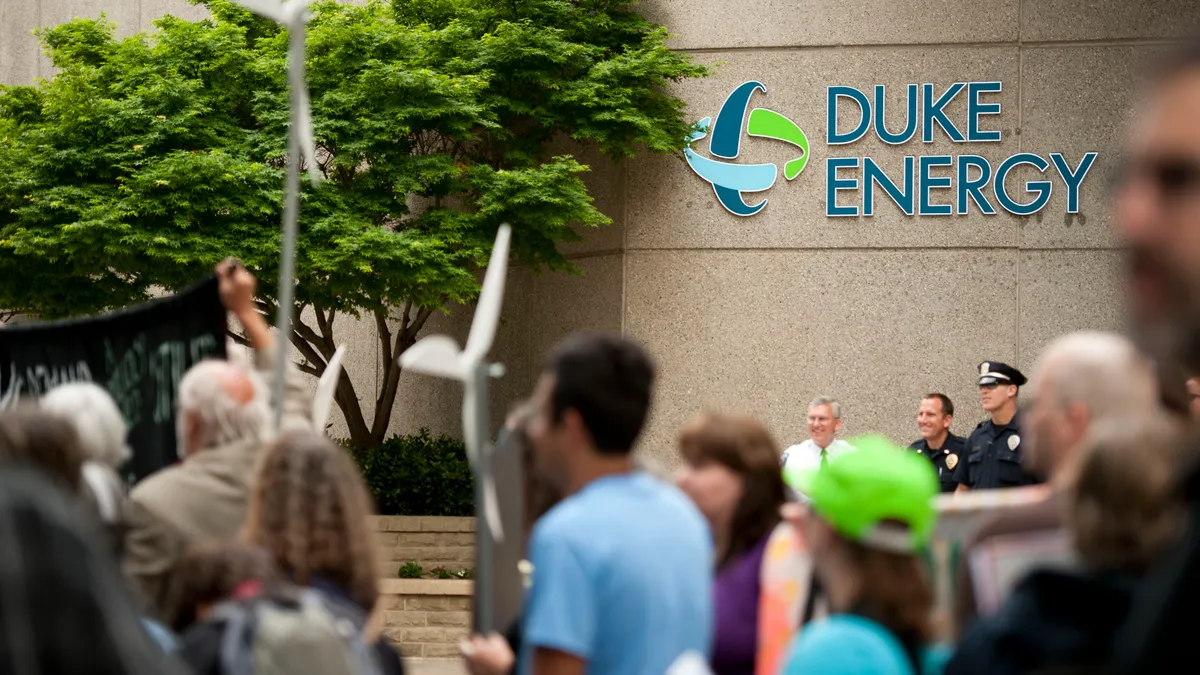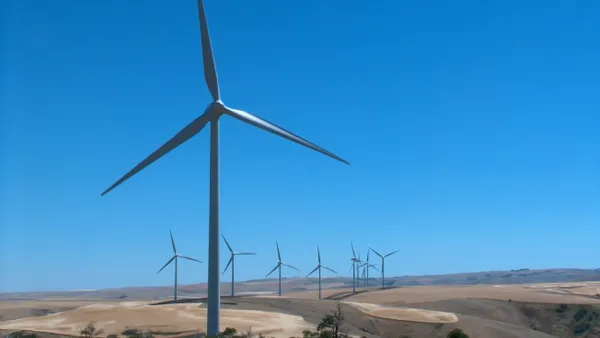Dive Brief:
- Duke Energy now has 10,000 MW of renewable energy in its portfolio and is on track to reach 16,000 MW of renewable energy by 2025, the company said Thursday in its second quarter earnings report.
- Duke is pushing ahead with plans to renew the licenses of its six nuclear plants in North and South Carolina, Lynn Good, Duke Energy's chair, president and CEO, told stock analysts on an earnings call. Good called the reactors "foundational" to the company's drive to decarbonize.
- Good also had praise for the energy-related provisions in the $1 trillion bipartisan infrastructure bill moving forward in Congress, including billions in new investments planned in electric vehicle infrastructure.
Dive Insight:
Duke Energy is in the midst of a five-year, nearly $59 billion "growth capital plan" as the North Carolina-based utility pushes ahead with efforts to decarbonize its operations, Good said Thursday on a call with stock analysts.
Duke is on track to bring online two major solar projects, totaling 250 MW in North Carolina and Florida, by the end of the year, while recently commissioning two new solar projects, the 144 MW Pflugerville solar project and 182 MW Maryneal wind farm.
The last two projects, both in Texas, pushed Duke's renewable portfolio past the 10,000 MW mark, Good said.
"With the completion of these two projects, we hit a significant milestone," the Duke CEO said.
Overall, Duke reported adjusted EPS of $1.15 during the second quarter, up from $1.08 during the same period in 2020. Growth in its electric utilities and infrastructure units, favorable rate case decisions and higher volumes all helped to power the increase in earnings, the utility said.
Duke's renewable portfolio is now on track to more than double by 2030, when it is expected to hit 24,000 MW, with renewables making up 40% and possibly more of the utility's power mix by 2050, Good said.
"Renewables are playing a major role in our path to net zero," Good said.
Duke is also taking steps to renew the operating license for its fleet of nuclear reactors in North and South Carolina, with Good calling the half dozen plants "a foundational component" of the company's drive to decarbonize its grid.
The power company recently kicked of the process of renewing Oconee Nuclear Station's license for the next 20 years, with the review expected to take 18 months, the Duke CEO said.
Oconee is the flagship of Duke's nuclear fleet, producing 2,500 MW through its three generating units, or roughly enough to light nearly 2 million homes, she said.
"Our nuclear fleet provided 83% of the company's carbon-free generation in 2020 and avoided the release of nearly 50 million tons of carbon dioxide," Good said.
The Duke CEO said she is also closely watching the progress of House Bill 951 in North Carolina, which she said the company supports.
The bill, which recently clearly the House of Representatives, mandates the retirement of "12 coal units" at five locations, to be replaced by "cleaner forms of generation" and "renewed solar programs and modern ratemaking tools," Good said.
"We support House Bill 951 and will continue to monitor its progress through the legislative process," Good said.
On the federal level, Good said she was encouraged by plans in the bipartisan infrastructure bill to spend $7.5 billion building out EV charging stations around the country.
Duke Energy in February launched eTransEnergy, a subsidiary aimed at helping customers ranging from school districts to delivery companies make the transition to electric vehicles.















